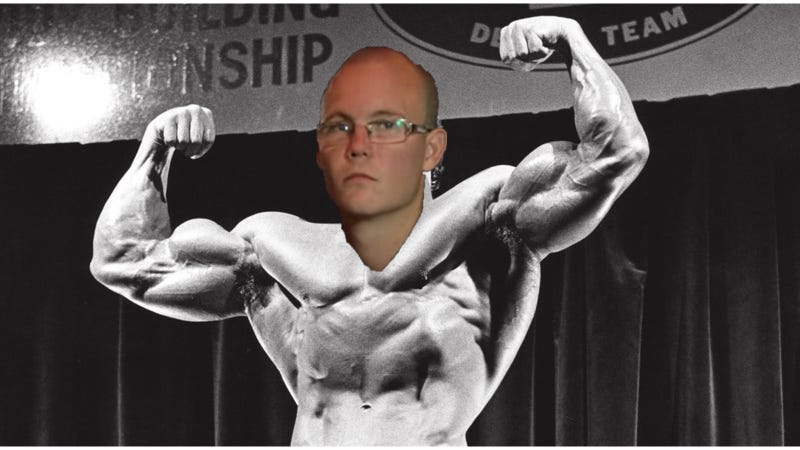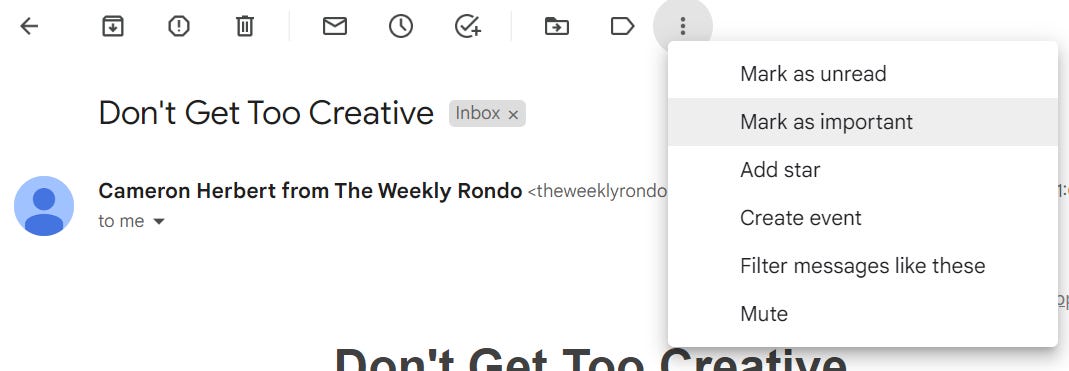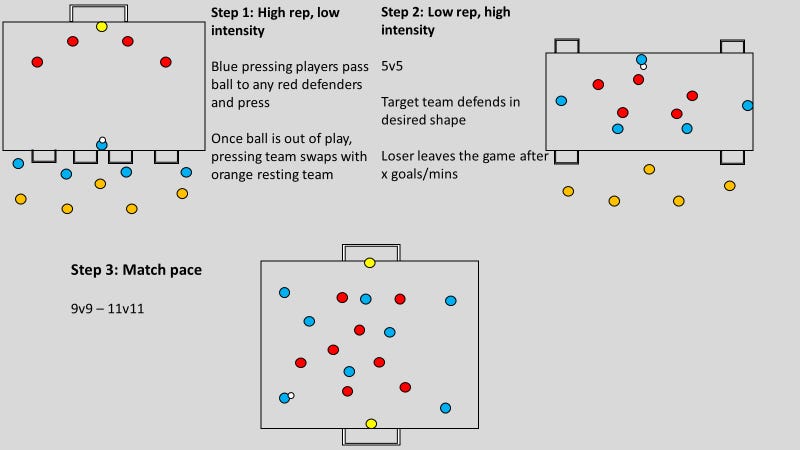Good morning! I want to talk about load management and what I’m learning about it so far!
Before we start, please check that The Weekly Rondo is marked as “important” in your inbox. Each week just under 50% of The Weekly Rondo readers open the newsletter from their inbox - that means you aren’t being shown the latest issue easily.
Neat Reads
Neat Reads is a segment where I share an article or podcast that interests me and relates to our weekly theme.
First up is a neat read by Mind Tools where they talk about how people process information. For example, auditory and visual information is understood and stored in the brain differently. How we load information onto our players is crucial.
Second is a podcast I listened to by Dr. Andreo Spina where he discusses how to manage load for athletes, injury recovery and prevention, as well as a few other topics related to load management.
My players should just work harder!
Look, when I started coaching I genuinely never thought of load management at all. I figured my players hadn’t slept enough, eaten or drank enough, or were simply lazy - excluding all the other human reasons for having a bad day/week/month like being depressed or going through things off the field.
It wasn’t until two or three years ago that I made a stronger effort to ensure the safety of my players. I wasn’t deliberately trying to hurt them in training before, rather I just wasn’t acknowledging their physical and mental capacity to train and learn.
What changed?
Strength training and personal development has helped me understand that a few things:
1) You cannot hit a new PR in the weight room every week. Your central nervous system (CNS) needs time to recover.
2) Your mind will struggle to appreciate your “deep work” blocks when they’re across several topics.
3) Volume is the goal, so you don’t need to have the most intense session of your life when learning or training. However, don’t train like a loser.
The CNS
Look, I want to coach Juego de Posicion and talk about tactics in a cafe like every other coach.
But that’s not our job. Here’s a quick read (more reading, cry me a river) that gives a very basic idea of how we can manage the CNS of our players easier.
Deep Work
Put the phone down, get some pencils and papers and write. I found this to be a great way to get my players thinking critically in an environment that let them collaborate while they worked on one topic.
Too many adults are working with six tabs open on their laptops, WhatsApp installed on their laptop, phone in one hand and working on too many projects at once.
Simply put, if we want to achieve deep work we need to do what we ask of players: work on one topic, collaborate with others working on the same topic, and remove as many distractions as possible.
If we set up these deep work blocks effectively for our players (and ourselves!) We can manage their cognitive load more effectively than saying “work harder” or “be smarter.”
Crank it to 11
Volume is the goal. If we want to work on defending in a mid-block then we need to spend time training in a mid-block. If we give too much work to our target team over a four day training period they won’t be physically sharp enough on the weekend.
How can we get an intense session but not ruin the weekend’s performance?
Visit the Exercise of the Week for an example of how I might do that.
Coach’s Corner
Coach’s Corner is a segment where I ramble about training this week and answer some questions I get from Substack or Twitter.
Ramblings
When I go to the gym I want to be the strongest person there. I want to lift more heavy circles than the other guy.
Similarly, my players want to score more goals, dribble past more people, make more tackles, etc. than the teammates they train with.
The problem is not the intensity, the problem is that we want to get better faster so the intensity is almost forced.
It’s better for me to have one day of heavy deadlifts (90%-95% of my 1RM) where my rep range is between one and two, and one day of lighter deadlifts (50%-65% of my 1RM) where my rep range is between six and eight.
If I deadlifted 95% of my 1RM twice a week, my CNS wouldn’t have enough time to recover for my heavy bench press day or heavy squat day.
If our players work at the highest physical intensity each day of each week they won’t be fit enough to learn and execute what we’re asking them to do.
Q&A
How do you make players like Neymar or Ronaldinho in the modern game?
Seeing as I am the most creative player on the planet, there is no better person to ask than me.
Jokes aside, here’s a short article I wrote that talks about some of the steps I take to help players use their creativity better.
Questions can be asked anonymously if you’d prefer your name not to be included in the email. Just remember to mention that in your Twitter DM to me or in the comments below.
Exercise of the Week
This is how I might manage the physical load of my players while working on pressing in a 4-3-3.
Step 1 has them press in a 2-3 shape, get some sprints in, and focus much more on their positioning.
Step 2 has them practice the positioning we worked on previously in a tighter, more intense area to keep the game exciting.
Step 3 has them practice as close to match pace as possible.
This is how I teach things without overloading the minds and bodies of our players. I just need to tailor it according to their schedule.
Conclusion
Thanks for reading this week!
I’m always interested to hear your thoughts and ideas so please feel free to send me a message on Twitter or leave a comment above in the Q&A section.
Share this newsletter with a friend or every single person you have ever met.
See you next week!
Where to find me:
Medium: https://medium.com/@cameron-herbert
Twitter: https://twitter.com/CamH___
LinkedIn: https://www.linkedin.com/in/cameron-herbert-football-coach/







